|
Exposure is an interactive VR experience that explores the events happening at the beginning of the fight for LGBTQ+ rights. You are a photographer in 1969 who is told by your boss to cover the events happening at the Stonewall Inn in Greenwich Village, NY. However, there are police patrolling the area to prevent the media from reporting on the event. Sneak past the police and get your shot! |
We aim to explore how to help local visitors extend the impact of their trip to the Georgia Aquarium and encourage an enhanced revisit. 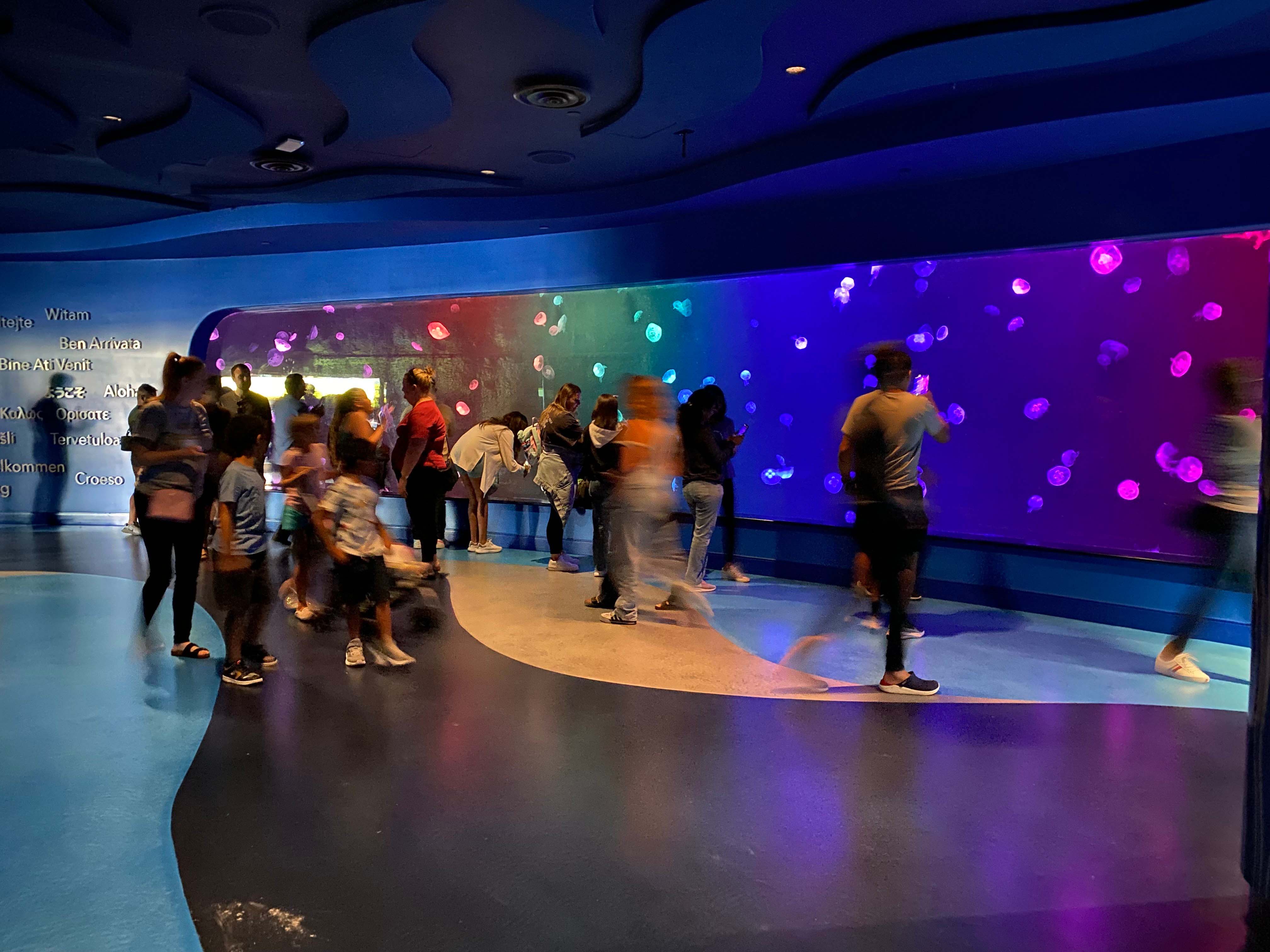 |
We have created a visualization that presents one week of a person's Facebook messages and notifications. The focus here is to allow someone to quickly catch up with what has been going on in their feed, which messages were "hot", who has been active, etc. The tool leverages a number of different visualization techniques and can benefit from a very large display. |
Analysts routinely encounter large collections of text documents with many accompanying numeric or categorical data fields. For example, consider a collection of wine reviews where the main text part of the document is the actual review narrative, but the accompanying fields are data such as the wine's variety, color, age, rating, producer, region, reviewer, and so on. In this project, we are exploring techniques to allow analysts to investigate the document collection by "slicing" it along the different attributes affiliated with each document (we call them "facets"). |
|
PostArt is a simple, easy-to-use tool for older adults with Mild Cognitive Impairment to create digital postcards for family and friends. In addition to creating, they can share and view postcards created by other members. The goal of PostArt is to facilitate self-expression and social engagement in older adults with MCI in the Cognitive Empowerment Program. |
Fan Funhouse is a browser-based video remixing application that allows users to edit webcam videos using a palette of effects inspired by a pop culture franchise. The increasing prevalence of user-generated media production in apps and on the web has coincided with pop culture brands, ranging from The Powerpuff Girls to Peanuts, providing fans with opportunities to quickly create and share personalized "fan media" in their web browsers. 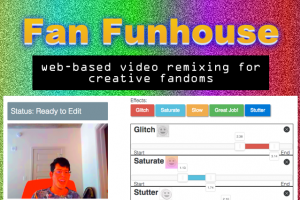 |
The FIDO Sensors team is creating wearable technology to allow working dogs to communicate. Assistance dogs can tell their owners with hearing impairments what sounds they have heard; guide dogs can tell their owners if there is something in their path that must be avoided. We will be demonstrating a variety of wearable sensors designed for dogs to activate. 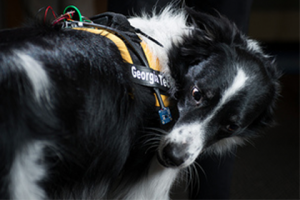 |
In 2014, Flextronics (now Flex) came to Georgia Tech with an interest in integrating and testing devices in our authentic home environment (The Aware Home). They were at a stage in their development of the Wink Hub where they needed a home environment to test ranges and reliability, as well as show clients how their products would integrate into a home environment. The Wink Hub is now available as a Do It Yourself solutions for the connected home, enabling transfer of messages between in-home devices and the Wink cloud. |
Flow MedtechLab: Currently, 4.4 million Americans have been diagnosed with atrial fibrillation (AF), in which the heart beats in an irregular rhythmic pattern. That number is estimated to reach 12-16 million by the year 2050. Patients with atrial fibrillation have over a fivefold increase in the chance of stroke. Due to complications from the current standard of care, anticoagulants (i.e. blood thinning drugs), to treat resulting thromboembolism (i.e. clotting) from AF, alternative treatments are actively being sought out to decrease complications and risk of stroke. 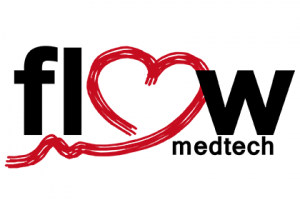 |
Over the past 2 years, we have performed experiments to understand what activities within a video game context result in cognitive gains (and which do not). From these findings, we have developed a custom cognitive game called "Food for Thought. 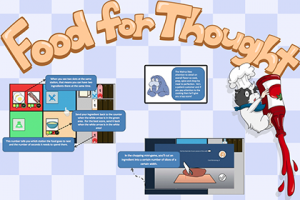 |
FossilVR is a novel virtual environment that grounds the skill of making inferences in an authentic context: a paleontological fossil dig. |
Fossil VR is a virtual reality tool that allows students to accompany a paleontologist into the field to find fossils and make observations and inferences about their findings. 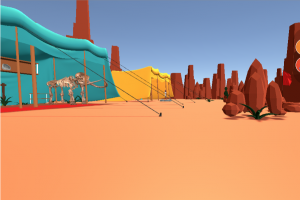 |
|
Much of the research on educational technology (e.g., MOOCs and adaptive learning systems) has been driven by the capabilities of technology instead of the pedagogy and cognition of learners. Our research takes the opposite approach. A review of the literature on educational technology and instructional methods for teaching STEM courses was used to identify the strengths of technology in education. These findings are being used to develop educational technology and provide heuristics and guidelines for developing effective STEM courses that optimally support learning.  |
A CAPTCHA is a challenge-response test used on the Internet to prevent bots from accessing web services that are designed for humans. We are investigating Automatic Game based CAPTCHA Generation (AGCG), in which an AI system generates games that, when played, distinguish between humans and bots. The game based CAPTCHA takes advantage of not only the bots' difficulty performing pattern/object recognition, but also their lack of commonsense knowledge. Thus it is more secure but remains easy and fun for humans, compared to traditional visual based CAPTCHAs. |


